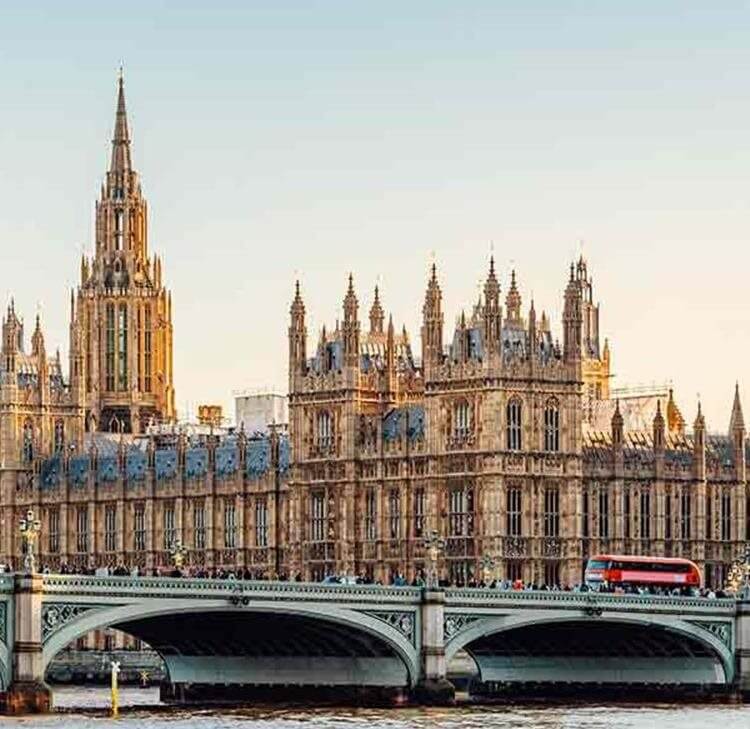
Subsidy control
Our market-leading subsidy control team advises all levels of government, private and third sector organisations on compliance with the subsidy control and legacy state aid regimes. We’re one of the largest subsidy control teams in the country.
From national grant funding schemes to public sector loans, guarantees and joint ventures, we advise on all aspects of the regime in a variety of sectors. We support both funding bodies and recipients so understand each party’s objectives and requirements. This enables us to provide tailored solutions suitable for all parties.
We advise clients on subsidy control challenges and audits, and our contacts with leading counsel and consultants in this niche area mean we’re able to assemble market-leading teams to support clients through these processes.
Subsidy control law is complex and changing rapidly, so clear advice from sector experts is critical to ensuring compliance and eliminating legal risk. Subsidy control opinions are also often required to unlock public funding for projects.
What we do
- Public funding schemes – we work with public sector clients to design and implement funding and subsidy schemes, including establishing a range of processes for ensuring subsidy compliance and reviewing subsidy control opinions from applicants. We also support applicants’ requests for funding, providing supporting subsidy control opinions of confirmations.
- Public projects – whether advising public sector bodies or their partners and suppliers, we identify and address subsidy issues in public sector projects. We find pragmatic solutions to subsidy risk which support the parties’ key objectives.
- Subsidy principles – designing subsidies to comply with the subsidy principles is a completely new concept introduced to the UK’s new subsidy control regime. We support our clients’ assessments against the principles and draw on our experience of a wide variety of projects and government guidance to ensure compliance.
- Legal opinions – we provide and review subsidy control legal opinions and supporting statements required to unlock public funding.
- Challenges and audits – we advise on legal challenges on subsidy control and funding audits queries. We work with leading counsel and consultants to protect our clients’ interests.
- Training services – we regularly provide training sessions and workshops on subsidy control to our clients. Our clear and pragmatic approach to this complex is area is universally well-received.
- Public bodies – we advise all levels of government and non-departmental public bodies on subsidy compliance, including those giving and receiving subsidies.
- Educational bodies – we regularly advise several universities on subsidies in a wide variety of projects including R&D collaboration, enterprise parks and start-up support.
- Private/third sector – we support recipients of public funding and support, both when applying for funding and when delivering public projects or otherwise participating in such projects.
"The team has an ability to know and anticipate the needs of local government and the issues of concern for them and ensure that these matters are addressed at all stages of the work undertaken."
Featured experience
50+ applicants for LEP funding
Advising 50+ applicants for LEP funding (including private and public sector applicants and universities) on the state aid compliance of their projects. This included drafting formal opinions where necessary. These projects included those focussing on skills development, career support, opportunity development and job creation and business growth and viability.
Canal & River Trust
Advising Canal & River Trust on several grant funding projects, including under the Towns Fund and Levelling Up Fund.
Department for Business, Energy and Industrial Strategy (DBEIS)
Advising the Department for Business, Energy and Industrial Strategy (DBEIS) on the state aid and subsidy control aspects of its £320m Heat Network Investment Project and the successor Green Heat Networks Fund – including drafting national guidance for the scheme and reviewing legal opinions from fund applicants.
Derby City Council
Advising Derby City Council on its contribution of grant funding towards the development of the Derby Smartparc Development. This is a key development for the economic development of Derby and consists of a 140-acre high tech food manufacturing campus which will create up to 5000 new jobs. The value of the development is estimated to be £300m.
Featured experience
Key contacts

Alex Kynoch
Partner

Angelica Hymers
Principal Associate

Karl Edwards
Senior Associate

Alex Lucas
Senior Associate

Athina Agrafioti
Associate
Testimonials
"The contract was carried out to a high standard while WEFO itself was unsure itself how the work was to be undertaken from the outset and altered the requirements slightly part-way through the contract. Browne Jacobson were helpful and were in contact throughout."
"Both quickly and efficiently Browne Jacobson were able to understand the complicated nature of the proposed scheme of redevelopment and they provided excellent knowledge of this specialised area of law and sensible solutions to assist. Their service levels were excellent and they were always on hand."
"Browne Jacobson’s approach was professional, responsive and thorough in supporting us to achieve our aims. The advice given was clearly explained and consistently solution based. Key staff were always accommodating, offered clear examples that demonstrated the impact of alternative decisions and were never patronising."
"The firm’s expert advice has spanned the broad range of legal work-streams involved in the project, and has been consistently sound and practical. The lawyers involved have impressed the client team with their diligence and ability to work to demanding timescales, as well as their successful working relationship with the internal Legal team."
You may be interested in...
Opinion
Expert evidence in subsidy control challenges: Tribunal draws a firm line
Legal Update
What lessons does Weis v GMCA have for public authorities delivering regeneration projects?
Published Article
Innovative housing strategies for councils after ‘asylum hotels’ injunction
Legal Update - Public matters newsletter
Public matters: August 2025
Legal Update
Changes to the subsidy control statutory guidance August 2025: What public authorities need to know
Legal Update
Greater Manchester Combined Authority v developer: Key lessons on subsidy control for local authorities
Legal Update
Subsidy control cases coming into land
Legal Update
Government publishes response to consultation on Subsidy Control Regime
Legal Update
Refining the UK subsidy control regime consultation
Legal Update
The housing benefit subsidy deficit: Strategies for funding temporary accommodation
Published Article
The legal and planning hurdles that must be overcome to get Great British Energy generating
Legal Update
Update on local authority owned companies: Part 1 subsidy control
Legal Update
Does the subsidy control regime already need changing for the government to kickstart economic growth?
Legal Update
The transparency regime under the Subsidy Control Act - how it could be improved
Legal Update
Subsidy control guidance update - welcome guidance on 'small subsidies' introduced
Legal Update
Subsidy control: Guide to streamlined routes for universities
Legal Update
Subsidy control - lessons learned in the first year
Legal Update
Review of a subsidy control decision: The Durham Company Ltd v Durham County Council, 27 July 2023
Press Release
Browne Jacobson advising the Welsh Government on the delivery of significant number of renewable energy projects
Legal Update
Subsidy control lessons to be learnt from Bulb
Legal Update - Public matters newsletter
Public matters - February 2023
Legal Update
Government introduces first Streamlined Subsidy Schemes under new regime
Legal Update - Public matters newsletter
Public matters - January 2023
On-Demand
The Subsidy Control Act 2022. Putting the new regime into practice
Legal Update
Government provides guidance on new Subsidy Control Database and the calculation of their value
Legal Update
The impact of the new Subsidy Control regime on public regeneration projects
Legal Update
Subsidy Control Act 2022: economic queries
In July, the long-awaited statutory guidance on the Subsidy Control Act 2022 (Act) was published in draft form (Draft Guidance). A consultation on the draft guidance has recently ended and the results have not yet been published – it may therefore change before the final version is published.
Legal Update
Economic activity for the purposes of the Subsidy Control Act 2022
When carrying out a mix of activities it can be less clear if it is 'economic'. We look at the impact on local authorities & charities.
Opinion
The UK’s first domestic subsidy control case
We waited more than a year for it, but the wait is over – we finally have a domestic case on the new subsidy control regime.
On-Demand
Subsidy control webinar - 30 March 2022
In this on-demand session, Alex Kynoch and Angelica Hymers explore the practicalities of complying with the new Subsidy Control Bill, and the impact of illustrative guidance and policy statements recently published by the Government.
Published Article
The Subsidy Control Bill – Illustrative Guidance and Regulations – legal certainty vs flexibility
It has been a turbulent couple of years for those involved in subsidy control, and 2022 will be equally challenging. The Subsidy Control Bill (Bill) will take effect in 2022.
Legal Update
Subsidy control regime: new Bill working its way through Parliament
2022 is the year in which the UK’s new post-Brexit subsidy control regime will take effect. The new Subsidy Control Bill will form the backbone of the UK’s new subsidy control regime. The new Bill will replace the EU’s state aid rules, which applied until the end of the Brexit transition period.
Legal Update
New Year, New Subsidy Control Regime Part 2: Schemes, enforcement and transparency under the Subsidy Control Bill
In the first part of this article, we discussed the application of the Subsidy Control Principles. In part 2, we look at how Streamlined Subsidy Schemes will be used to grant certain subsidies more quickly, and at the enforcement and transparency provisions of the Bill.
Legal Update
New Year, New Subsidy Control Regime Part 1: The principles, restrictions and exemptions under the Subsidy Control Bill
The repeal of the State aid rules and their replacement by the regime stemming from the UK-EU Trade and Co-operation Agreement (TCA) in 2021 meant that practitioners and public bodies had to acclimatise to a new, more flexible but less certain approach.
Press Release
Browne Jacobson’s government & infrastructure lawyers advise on first South West based green hydrogen production project
Browne Jacobson’s specialist government and infrastructure team have advised Canford Renewable Energy Ltd on the delivery of its Dorset Green H2 facility.
Published Article
Subsidy control after Brexit - a practitioner's perspective
Back in late 2020, we waited expectantly for news of what the rules on state aid were going to be when the Brexit transition period ended on 31 December.
Legal Update
Consultation on new UK subsidy control regime
It is vitally important that public bodies make use of this opportunity to have their views heard and to shape the future of the new subsidy control regime.
Opinion
Consultation launched on the future of subsidy control law
The Department for Business, Energy & Industrial Strategy has just launched its consultation on the future of subsidy control law (previously known as state aid) in the UK.
Legal Update
New year, new-ish state aid rules: the new subsidy control regime
Until a formal subsidy regime is put in place funding bodies must grapple with the complex and challenging exercise of legal obligations from the UK-EU TCA and numerous trade agreements to grant funding.


























